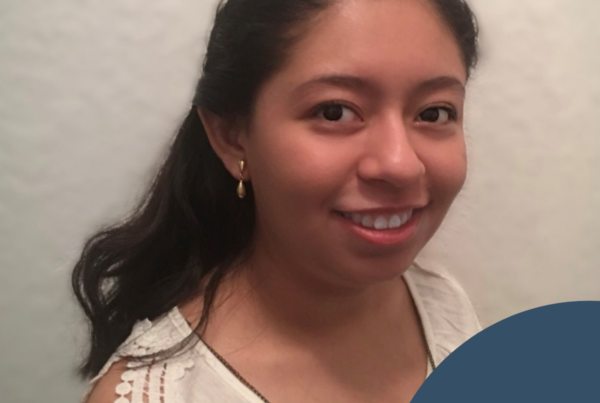Summary
A new study on accessible teaching co-authored by National Disability Center students and leadership is published in a special issue of the journal Teaching of Psychology.

Accessible and anti-ableist teaching is rarely prioritized in instructional development programs.
However, a new study co-authored by National Disability Center team members demonstrates that a new initiative focused on partnering with disabled students could transform the way instructors learn how to make their teaching more accessible.
The study, “Take a Deep Breath and Re-Center the Student’s Perspective”: Partnering Instructors and Disabled Students for Accessible Teaching, was published in a special issue of the journal Teaching of Psychology, “Creating an Anti-Ableist Psychology Curriculum and Teaching Environment.”
It is co-authored by Desirée Lama (Coordinator of Student Partnerships), Ryan A. Mata (Doctoral Research Affiliate), Soren Aldaco (Student Fellow), and Stephanie W. Cawthon, PhD (Executive Director and Principal Investigator).
Their findings demonstrate the role that disabled students can play in helping instructors learn about accessibility and how learning community models support substantive changes in teaching — results that could help teachers and departments improve their courses and engage in ongoing development to improve access and equity in their courses.
“The work behind this study led to the vision for the National Disability Center,” said Dr. Cawthon. “It was a project called the Collaborative for Access and Equity that was focused on the disabled student perspectives, mentorship, and outcomes — a successful pilot that is now a research center committed to establishing the first comprehensive and actionable research to support disabled student experiences and achievement after high school.”
About the Study
Launched in January 2022, the initiative piloted strategies for shifting pedagogical approaches to accessibility and instructors’ mindsets about making their teaching more accessible.
Using a professional learning community model, disabled students served as course consultants to instructors, working closely together in a semester-long partnership — with the objective of researching the program’s effects on the participating instructors. Multiple raters coded qualitative data collected over a period of five months from meeting notes spanning 30 instructor-student partnership meetings, four all-team meetings, two student focus groups, three instructor focus groups, and six online discussion boards.
Findings Reveal Impactful Strategies for Instructors
The results showed the mindset shifts and teaching strategies that emerged through the initiative. They also revealed the program elements that had the greatest impact on instructors, including:
- Designing courses and assignments with more flexibility
- Increasing transparency
- Fostering an inclusive environment
- Making an action plan
Other mind-shift strategies identified included:
- Focusing on supporting rather than policing students, after learning how anti-cheating policies reduce accessibility
- Foregrounding students’ health and voices, with many instructors reporting an increased readiness to support student wellness
- Acknowledging invisible disabilities and recognizing blind spots
- Implementing universal design and thinking of accessibility as part of how to design a course from the beginning, rather than as offering accommodations after a student discloses a disability
Julie Sievers was the lead author of the article (https://doi.org/10.1177/009862832412694), which was published online in August. Additional co-authors are Yiqiu Yan, Eric Ge, Gayathri Ramesh, and Ana Guadalupe Vielma.
With creative and hands-on articles, Teaching of Psychology is a journal that focuses on a variety of innovative ideas and resources to enhance student learning. Articles also provide helpful suggestions about how to teach difficult topics, such as research methods, introductory course material, and capstone ideas.


